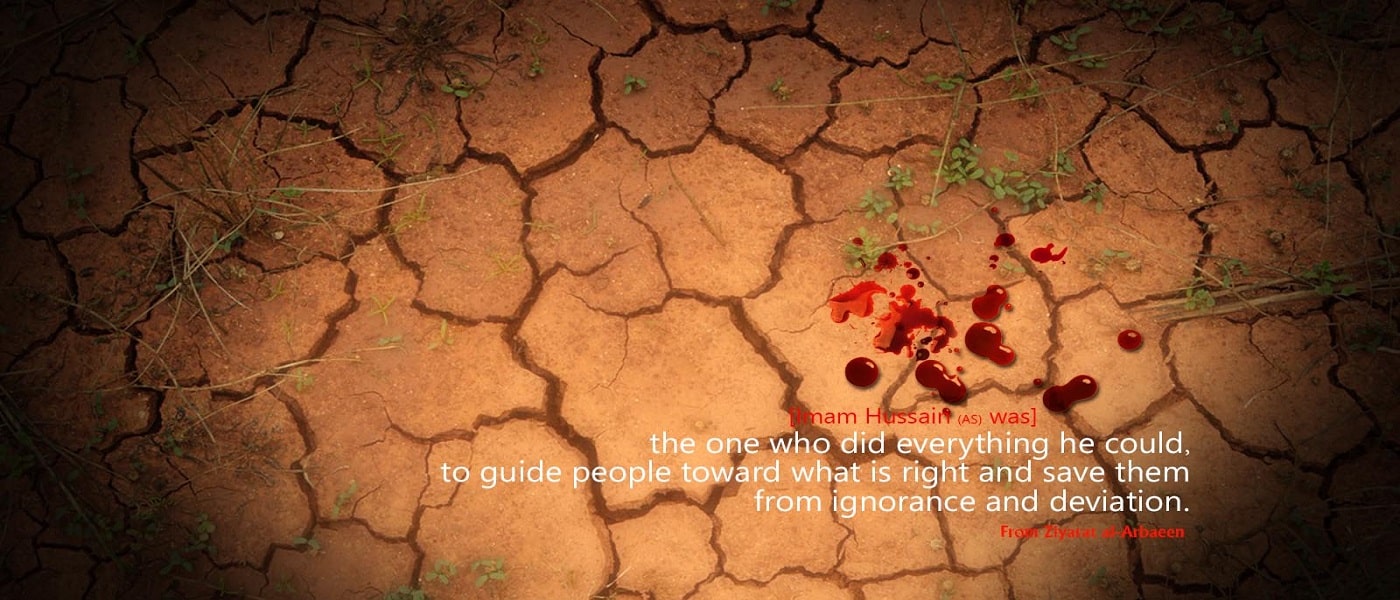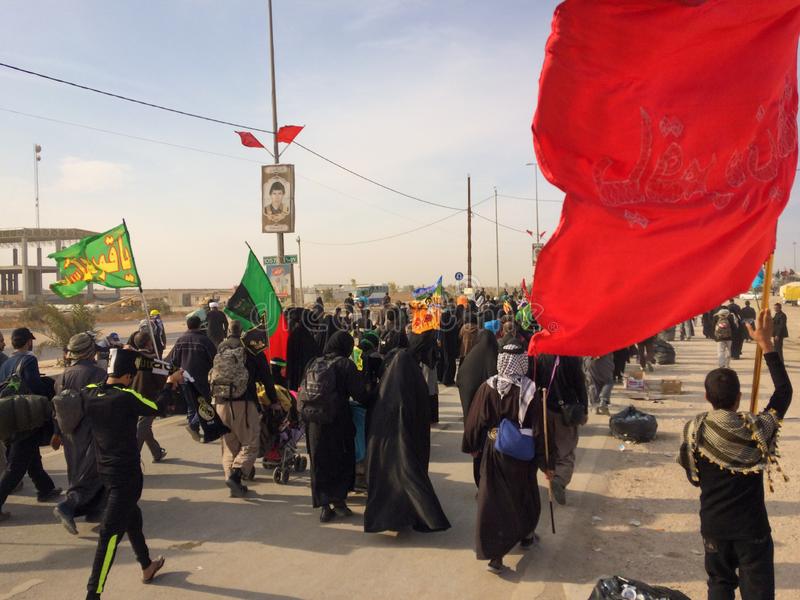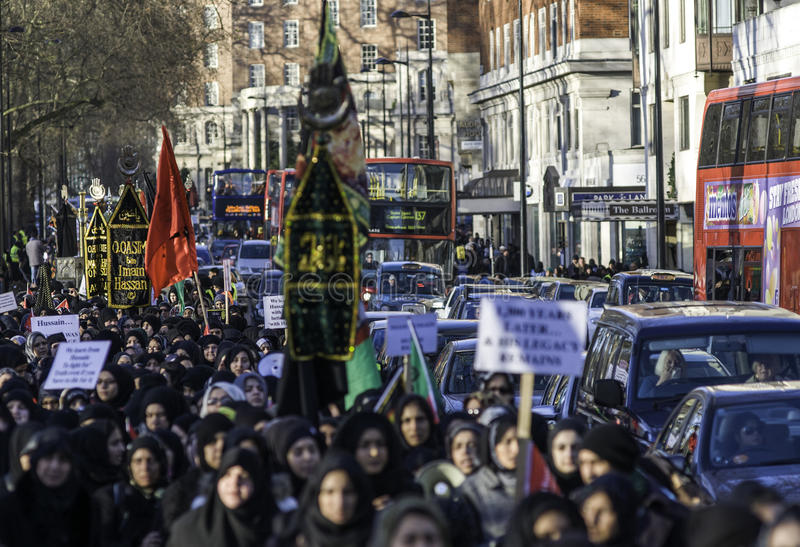

The unique attributes of Imam Sadiq (AS)
Imam Sadiq (AS) is the sixth Shiite Imam after his father Imam Baqir (AS). The Shiite school is mostly famous as “Jafari School” because Imam Sadiq (AS) played the most important role among the other Imams in explaining and spreading the Shiite teachings. Most of the Shiite hadiths are narrated from Imam Sadiq (AS).
Enlightening people about the essential message of Islam
Some Islamic teachings and practices are considered as the outer aspect of Islam, like praying, Hajj, Zakkat and stuff like that. These are the practices which any Muslim should do and respect but all of them have a deeper meaning and a concealed message that people mostly do not get. Sometimes people get so much used to do these practices and conduct ceremonies that they forget about the original meaning of them.
The holy Prophet (PBUH & HP) says:
O Aba-Zar! (One of the companions of the Prophet) Allah almighty doesn’t care about your faces or your wealth, but he cares about your hearts and your actions (1)
When you pray or pay your Zakkat, it must change you and teach you that praying is for getting closer to Allah and Zakkat is for helping the needy.
In this regard the holy Quran says:
Did you see him who denies the Religion? That is the one, who drives away the orphan, and does not urge the feeding of the needy. Woe to those who pray but are heedless of their prayers —who show off but deny aid. (The Holy Quran 107:1-7)
Imam Sadiq (AS) in different prayers says that if you pray but still feel pride and vanity, it will be useless for you because the Satan himself prayed for Allah for 6000 years but due to his vanity and jealousy, he couldn’t stand the greatness of Adam and tried to deceive him and Allah cursed the Satan.
Being Kind with the ones who disagree
Once Mufazzal ibn Umar (One of the brilliant pupils of the Imam) was sitting in the Mosque of the Prophet (PBUH & HP) in Medina. Then he saw Ibn Abi al-Ouja (one of the Atheist Philosophers) who was insulting the Prophet in the mosque and telling lies to the people saying that there is no god.
Mufazzal says that this made him so angry and he couldn’t control himself so he shouted: “O enemy of Allah! Have you become atheist and denied the God who created you?”
Ibn Abi al-Ouja replied: “If you are one of the religious scholars, I will have debate with you and if you are not, our discussion will be in vain. But if you are one of the companions of Jafar ibn Muhammad (Imam Sadiq) you must know that he wouldn’t talk to us like that and he wouldn’t have discussion with us in this way. He has heard so many more disgraceful words from us but he never has insulted us. He is so knowledgeable, patient and wise and he wouldn’t lose his control out of anger, ignorance or animosity. He always listens to us.” (2)
Imam Sadiq (AS) is famous for his numerous debates with the Sunnis, Atheists, Jews, Christians and so forth, but he would never insult them. He always would order his followers to be kind with the people.
For example about the Sunnis Imam Sadiq (AS) says:
Participate in their funerals and visit them when they are sick, and give them their rights because if a person among you is pious, honest, trustable and good-tempered, people would say “this is a follower of Jafar” and this makes me happy! (3)
Imam Sadiq (AS) and Caring about the young people
Once Imam Sadiq (AS) asked one of his pupils who had gone to Basrah (a city in Iraq):
“How was the enthusiasm of the people for our message and converting to Shia?” Imam Sadiq (AS) asked.
He said: “The ones who want to listen to our message are so few. Some of them did but they are few”
Imam Sadiq (AS) said: “You must talk to the young ones, because they are more eager for finding everything good.” (4)
Imam Sadiq (AS) also says:
“Teach hadiths to your young children from their childhood before the time that others beat you in training them” (5)
Young Shias must set Imam Sadiq (AS) as a pattern for themselves and follow him. They should learn more and more so that the different people who have gone astray can’t deceive them.
Resources
- Al-Amali, Sheikh Toosi, Pg.536
- Tohid al-Mufazzal
- Kafi, Koleini, vol.2, pg.636
- Vasail ash-Shia, vol.11, pg.448
- Kafi, Koleini, vol.6, pg.47
Share This Article

How Has Imam Hussain’s (AS) Uprising Inspired Humankind? Part 1
Imam Hussain (AS) is one of the important figures in Islam whose brilliant and lofty character together with his inspiring movement has been praised by many famous characters of the world. In this regard, Mahatma Gandhi said that: “My admiration for the noble sacrifice of Imam Hussein (AS) as a martyr abounds, because he accepted death ..., but did not submit to unjust authorities. I learned from Hussain how to attain victory while being oppressed.” [1]. Antoine Bara, a thinker, scholar, Christian and Syrian who wrote a book titled, “Imam Hussein in Christian ideology,” said that: “I am a Christian but call on humanity to follow the holiness of Imam Hussein as he is the conscience of all religions.” [2]. These quotes and others indicate that Imam Hussain (AS) is not an exclusive role model for Shi’a or Muslims, but belongs to the whole world. One might ask in what ways is Imam Hussain’s (AS) uprising an inspiration for human beings. We try to explain that through the following lines.
Imam Hussain (AS) Confronts the Oppressive Corrupted Regimes
Yazid’s reign was corrupted and illegitimate from the beginning. According to the peace treaty made between Imam Hassan (AS) and Mu’awiyah, the latter was forbidden to designate anyone as his successor after his death. But after the martyrdom of Imam Hassan (AS), Mu’awiyah broke the treaty. He appointed his son Yazid as his successor because he thought no one would be courageous enough to object to the decision of caliph. Hence, Yazid became caliph illegally after the death of Mu’awiyah [3]. Besides, according to historical resources, Yazid had a corrupted immoral character. He dared to act against Islamic rulings openly and perform forbidden deeds (Haram) in Islam publicly [3].
Imam Hussain (AS) was observant and aware of Yazid’s acts and intention. So, he refrained from pledging allegiance to Yazid. Moreover, oppression, tyranny, unjust use of public property, etc. had made life miserable for people [4]. Imam Hussain (AS) believed that Yazid’s manner and governing style was obviously against Islamic teachings and would eventually alter and spoil Prophet Muhammad’s (PBUH&PH) Sunnah. Hence, he stood up against Yazid to prove that his reign was illegitimate and to unravel the truth. Therefore, he (AS) said that he would never take the oath of allegiance to Yazid, even if there would be nowhere safe on the earth for him to go [5]. He never intended to take on the leadership and come to power, instead aimed at eliminating injustice and corruption.
Achieving Leadership, Not at Any Price
One might wonder why Imam Hussain (AS) did not pledge allegiance to Yazid to calm down his hostility so that he would have more time to make plans and find more companions to defeat Yazid. The reason was that Yazid’s behavior and deeds were too far from true Islamic principles and moral values such that Imam (AS) could not ignore them. Moreover, he (AS) did not want to play a trick as it is denounced in Islam.
Imam (AS) had other possibilities to defeat Yazid and take over the leadership, but he (AS) refused to do so. Through his missionary in Kufa, Muslim ibn Aqil, Imam (AS) could kill Ubayd Allah ibn Ziyad [i] before the battle of Karbala and before the enemy declared war against them. But, as a man who had stood up for justice, he did not act unfairly. Imam’s (AS) reaction was in the same manner as well; before the battle started when the enemy was fewer in number and easier to defeat, one of his (AS) companions recommended fighting them. He (AS) replied that he would rather defend if a war were imposed on him instead of initiating it. Moreover, when the enemy was impatient to start the battle, he (AS) did his best to prevent it by negotiating and bringing awareness to them by revealing the truth [4].
These examples demonstrate that Imam (AS) did not want to reign at any price; the same was true for other Infallible Imams (AS). This is of the traits of true divine leaders; unlike oppressive unjust powers. They never take the lead, whatever the cost.
Up to now, we found out about two reasons that make Imam Hussain’s (AS) uprising a worldwide inspiration. Firstly, one should be alert and sensitive to what happens around him\her. Then, to take the right action for the sake of justice and humanity. Secondly, even if one holds a noble intention, it does not mean that he\she is allowed to achieve that by any means; the end does not justify the means.
Imam Hussain’s (AS) movement has other lessons for human beings that we will discuss in the second part of this title.
Notes:
[i] The governor of Kufa during the reigns of Yazid, who executed Aqil, sent troops to intercept Imam Hussain (AS) when he arrived near Kufa and was one of the leaders of the battle against Imam (AS) in Karbala.
References:
- http://realiran.org/world-personalities-quote-imam-hussain/
- https://standwithdignity.org/article/antoine-bara-you-shia-do-not-appreciate-the-value-of-imam-hussein/
- https://www.al-islam.org/the-hidden-truth-about-karbala-ak-ahmed/chapter-13-muslim-empire
- https://salamislam.com/lifestyle/imam-hussain-embodiment-universal-moral-law
- M. Majlisi, “Bihar al-Anwar,” Dar Ihya al-Turath al-Arabi, Beirut, vol. 44, p. 325
Read More

Why Arbaeen walk?
Making pilgrimage to Karbala, where Imam Hussain (AS) and his loyal companions were bravely martyred, takes one of the highest places in a Shia’s wish list. All around the year, Karbala hosts the pilgrims who want to visit the holy shrine of Imam Hussain (AS). But the pilgrimage in Arbaeen is different.
“Arbaeen” takes place forty days later than “Ashura”. “Arbaeen pilgrimage” is actually one of the largest annual public gathering in the whole world. Millions of Shias and Sunnis or even many Christians, Yazidis and other faiths with various nationalities participate in this grand religious ceremony and gather from all around the world in the city of Karbala. A remarkable number of them takes this trip on foot and walks from Najaf to Karbala (approximately 80 kilometers).
Many Muslims try so hard to make it to Karbala on Arbaeen and many Iraqis do their best to serve the pilgrims. During these days, copious amount of food, water, as well as small medical facilities which is run by GPs and specialists, and tents for resting are available along the route and in the cities where the pilgrims stay and visit. These services are all provided free by the native people.
Considering this large number of pilgrims and the great amount of money and time that is spent for this pilgrimage, this question may pop into many minds: What is it for?
Many goals and reasons can be mentioned for why we _Shias_ take this trip and go to the Karbala. In this text, we mention one of these reasons which is of great importance.
Among the many goals of the “Arbaeen walk” ceremony, introducing Imam Hussain (AS) to the whole world seems to be the most significant one. The public gathering of Arbaeen gives us a precious opportunity to make people get to know Imam Hussain’s personality (AS) and understand his message. This unprecedented and unique event that happens only once a year can be so attractive for people around the world who yearn for finding the truth.
Arbaeen walk is an Exhibition
Arbaeen ceremony is a unique event in which people and society go through a huge change, which isn’t seen in any other part of the world. Millions of people gathering in three or four Iraqi cities in about twelve days just for visiting the holy shrines can be a disaster to any other similar countries, but Iraqi people host this ceremony without any difficulties. In these days unlike other times, money loses its meaning. For maintaining peace and discipline, people themselves are enough and there’s not much need for police forces. People won’t be hungry, homeless or harmed by any person. In these days, people are even braver compared to other days, because they dare to face many problems and dangers that are otherwise intolerable. Even when the ISIS was in Iraq threatening the pilgrims, millions of people participated in this ceremony (1).
In this regard Imam Sadiq (AS) says:
O God! Our enemies frowned on their journey and threatened them, but it didn’t stop our followers from getting up and departing towards us in spite of the enemy’s opinion (2).
When people around the world observe this great exhibition, they understand the truth about Islam and Shi’ism which the terrorists like ISIS tried to taint.
Furthermore, Arbaeen walk offers the whole humanity a glimpse at Islam’s suggested life style and civilized society: A society with no war, no poverty, hunger, and no discrimination.

The sound of Imam Mahdi (AS)
As said before, introducing Imam Hussain (AS) is the most significant objective of this grand ceremony. The importance of this purpose lies in the fact that introducing Imam Hussain (AS) and his message is actually introducing our only awaited Imam, Imam Mahdi (As) to the whole humanity. By telling people who is Imam Hussain (AS), we are actually making people familiar with the Shia Imams and the massage of this faith. Shias believe their Imams are all like each other and they seek one goal, which is spreading the peaceful message of Islam to the whole world. This is actually the essential message of Islam, too. The Holy Quran says:
It is He who has sent His Messenger with guidance and the true religion, that He may make it prevail over all religions, and Allah suffices as witness (48:28)
Certainly We sent Our messengers with manifest proofs, and We sent down with them the Book and the Balance, so that mankind may maintain justice (57:25)
Imam Mahdi (AS) is the last Imam who is destined to carry out this mission and we, as his followers, are obliged to raise awareness about His mission and himself. When people understand the message of Imam Hussain (AS) they actually understand Imam Mahdi’s message (AS) since there is no difference between them. The Holy Prophet (PBUH & HP) says:
Allah almighty created me and my Household [the twelve Imams] from one same light (3)Imam Sadiq (AS) also says:
There is always a justful successor among us who defend the religion against the falsification of the extremists, plagiarism of the disbelievers and the wrong understanding of the fools. (4)
According to the prophecies about the last Imam (AS) when he arrives and introduces himself to the people, all the world hears his voice in their language at the same time. Then, Imam Mahdi (AS) introduces himself as the descendant of Imam Hussain (AS):
O people of the world! Indeed my grand ancestor Hussain (AS) was killed while he was thirsty, O people of the world! Indeed he was left on the earth with no cloth, O people of the world! Indeed he was beaten so hard out of animosity (5)
Clearly, when people hear this voice, must know who is Hussain (AS); so, it’s our duty to make them familiar with him.
Resources
- this ceremony
- Thavab al-A’mal, Sheikh Saduq, Pg.94
- Avalim al-Olum, al-Bahrani, Vol.15, Pg.155
- Kafi, Koleini, Vol.1, Pg.32
- Ilzam an-Nasib, Al-Yazdi al-Haeri, Vol.2, Pg.233
Read More

